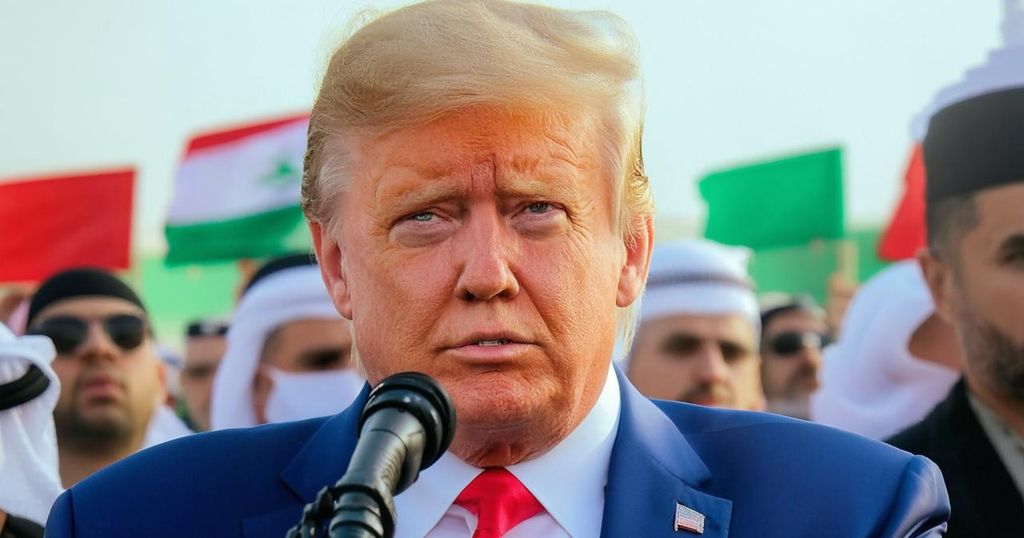The Gulf States’ Strategic Preference for Trump Over Harris
Saudi Arabia and the UAE are likely to support former President Donald Trump in the upcoming U.S. election due to concerns about Vice President Kamala Harris’s foreign policy approach, which may threaten their regional ambitions. Trump’s previous administration provided critical military and diplomatic support that benefitted these Gulf states, particularly in countering Iran. Under Harris, a shift towards renewed diplomatic engagement and a decrease in military backing could complicate their strategic interests. The article assesses the ramifications of this potential shift in U.S. leadership on Middle Eastern geopolitics.
Saudi Arabia and the United Arab Emirates (UAE) appear to be aligning with former President Donald Trump in hopes of advancing their regional objectives amid increasing instability in the Middle East, notably the ongoing conflict between Israel and Hamas. As the United States prepares for the upcoming presidential election, the Gulf states, particularly Saudi Arabia and the UAE, may view Trump’s potential return to power as a favorable opportunity, especially given their apprehensions about Vice President Kamala Harris’s foreign policy, which may not align with their geopolitical ambitions. Trump’s previous administration granted these nations substantial support, enabling them to pursue aggressive policies against Iran and reclaim influence in regional politics. Conversely, if Harris wins the presidency, her anticipated engagement with Iran, and her emphasis on diplomacy in conflicted regions such as Yemen and Sudan, could undermine the interests of both the UAE and Saudi Arabia. Under Trump’s leadership, a security pact was negotiated that promised U.S. military support and arms sales, contingent on Saudi Arabia’s normalization of relations with Israel. Although these discussions faced disruptions due to the Gaza conflict, Trump’s administration had provided the Gulf monarchies with a sense of security and military backing that they fear could diminish under Harris. Indeed, her administration might revert to approaches reflective of previous Democratic foreign policy, which, while critical of Gulf states, might lean towards multilateral engagements rather than the robust support provided during Trump’s tenure. For both nations, particularly under Crown Prince Mohammed bin Salman of Saudi Arabia and Crown Prince Mohammed bin Zayed of the UAE, a second Trump presidency signifies a potential escalation of their military capabilities through substantial arms deals and nuclear cooperation agreements, which current geopolitical dynamics in the region may demand. With Trump at the helm, both countries would arguably find themselves with greater latitude to pursue their objectives unimpeded by phenomena such as human rights concerns, which have emerged in the current administration’s dealings. Furthermore, the UAE significantly benefited from the Abraham Accords under Trump, fostering stronger relations with Israel and positioning the UAE to elevate its influence while aspiring to secure advanced military assets such as F-35 fighter jets—a deal which may face stricter scrutiny under Harris. In summary, the Gulf states’ preference for Trump over Harris is indicative of a strategic evaluation of regional dynamics, particularly in relation to Iran and ongoing conflicts in places like Yemen and Sudan. The complexities of U.S. foreign relations, coupled with the aspirations of Saudi Arabia and the UAE, underscore the delicate balance at play in Middle Eastern geopolitics as they navigate a potentially shifting American leadership.
The article discusses the geopolitical motivations behind the Gulf states’ potential support for Donald Trump in the upcoming U.S. presidential election. It outlines how current tensions in the Middle East, exacerbated by conflicts involving Israel and Hamas, raise concerns among Saudi Arabia and the UAE about the prospect of a Vice President Kamala Harris-led administration. The Gulf states fear that Harris’s approach—predicated upon diplomacy and renewed engagement with Iran—might undermine their strategic interests and diminish the robust U.S. support they enjoyed during Trump’s presidency. This analysis connects their historical relationships with U.S. administrations with current regional security dynamics.
In conclusion, the Gulf states, particularly Saudi Arabia and the UAE, are likely to favor a return of Donald Trump to the presidency as it aligns with their strategic and military ambitions in a turbulent geopolitical landscape. Trump’s prior policies enabled these nations to bolster their power and pursue aggressive regional ambitions, particularly against Iran. In contrast, Vice President Kamala Harris’s anticipated diplomatic approach could jeopardize the Gulf states’ interests. Given this context, the future of U.S.-Gulf relations hinges on the outcome of the election, with potential implications for regional stability and military strategy.
Original Source: foreignpolicy.com




Post Comment